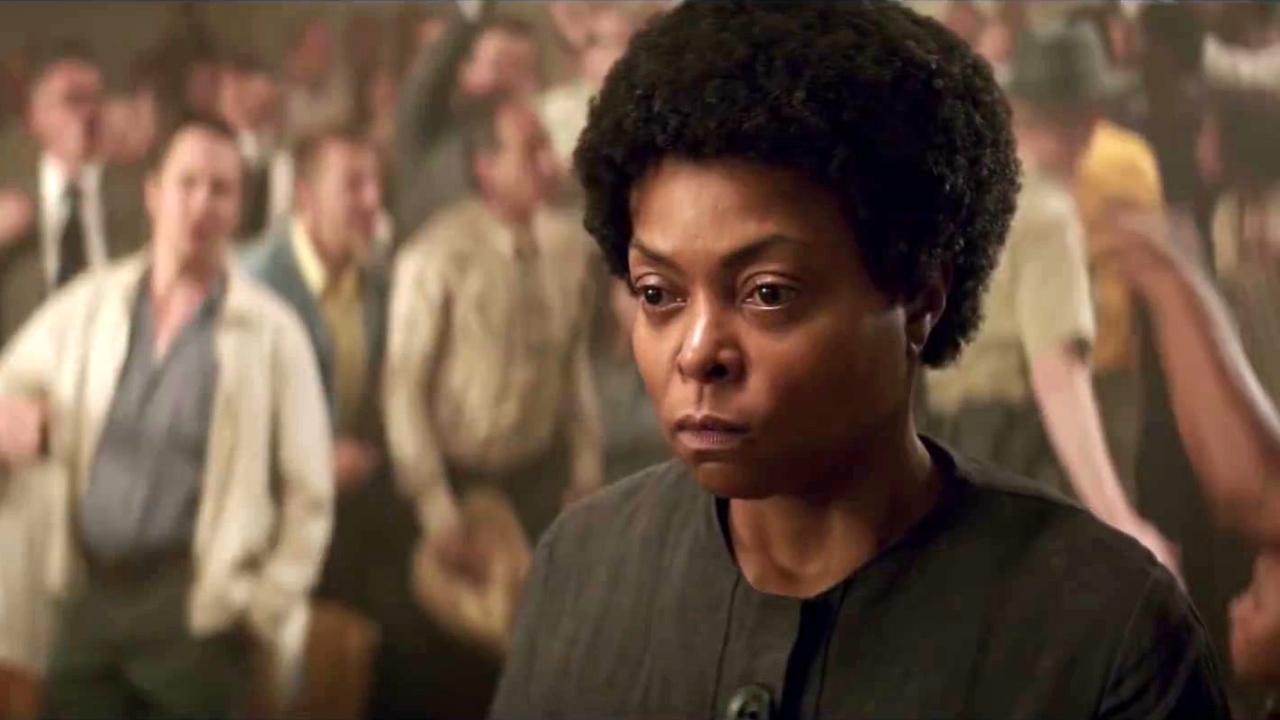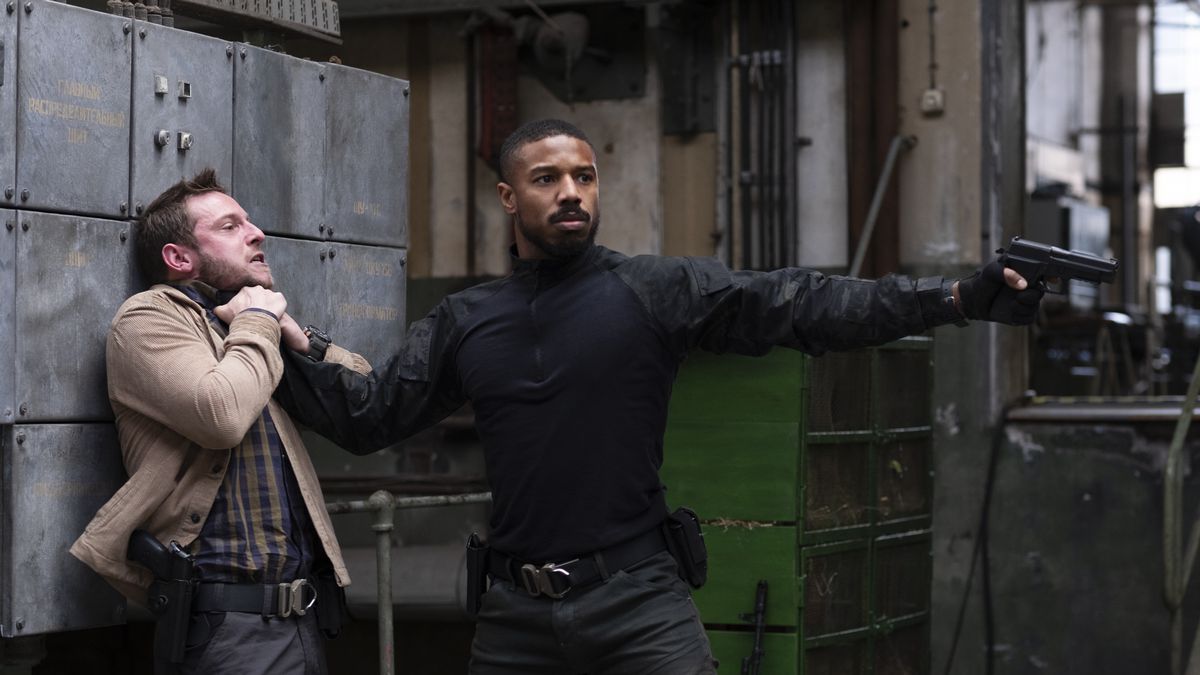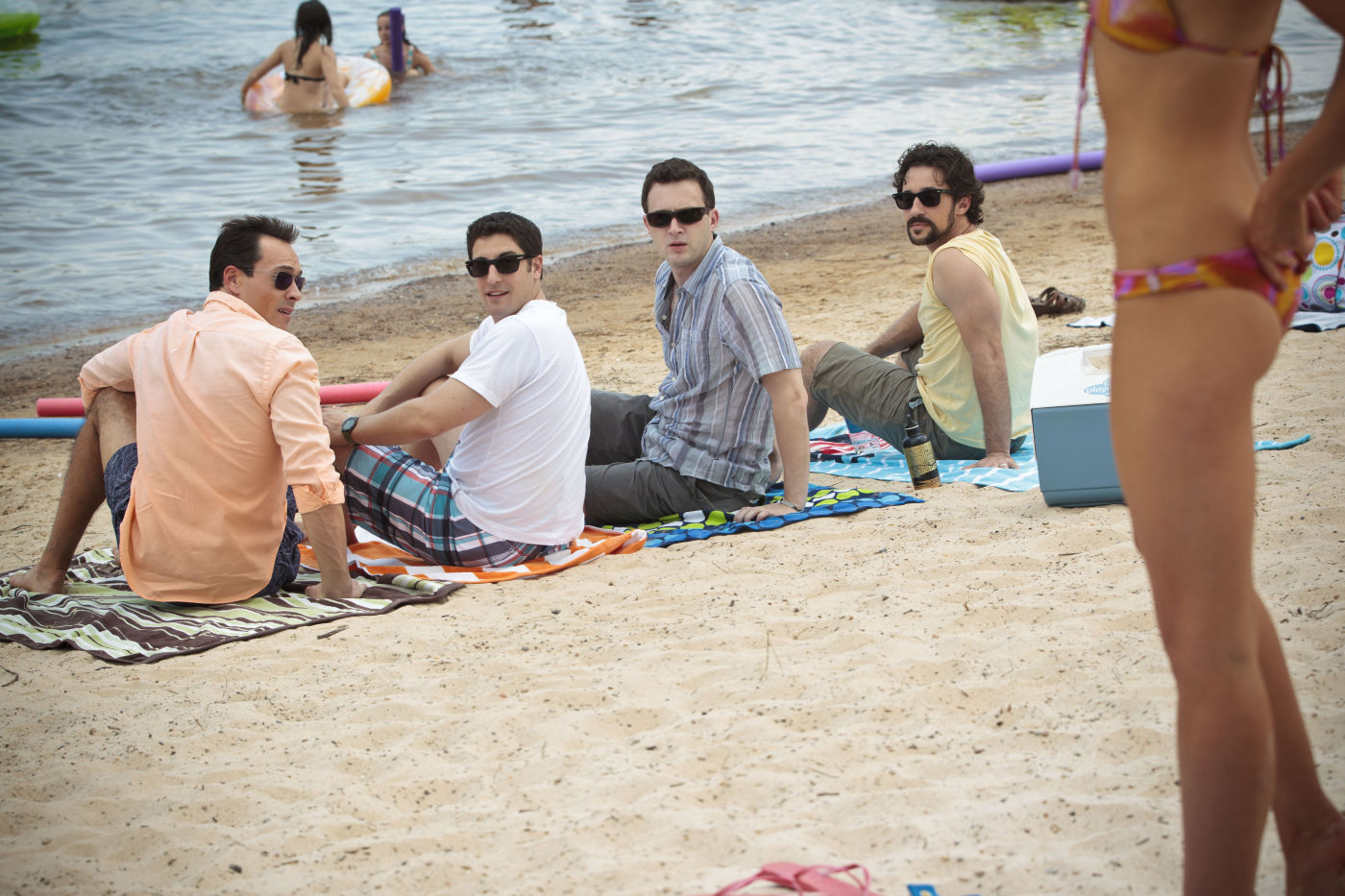This really happened. I’m telling you because were the film fiction, I would pan it as unrealistic; then again, I would also pan the Trump presidency on the same grounds – oh, yeah, I can see a brainless, tactless, racist, narcissistic demagogue coming to power. Sure, I can even see the legion of misguided, selfish, hate-mongers who propped him up. What I do not get, however, is the part where the monster shows every day that he’s a monster and the people still cheer. Take it back for a rewrite, History; this is shoddy work.
By the 1970s, Jim Crow laws were gone and, hence, so was racism. HAHAHAHAHAHA! I’m kidding, of course. Racism didn’t go anywhere; the forces just got a tad shrewder. Just because the number of lynchings recedes doesn’t mean the forces of good won Social Justice outright, knowwhatI’msayin’? Set in a very segregated Durham, North Carolina, The Best of Enemies is big on soft racism. Oh, sure, there were still “N” words aplenty and good ol’ boys shooting out the porchlights of “race traitors,” but the bulk of this piece dealt with the more subtle racism that existed between Crow and Trump – voter suppression, voter intimidation, unequal access to public goods, and unequal economic opportunity.
Durham was still extremely segregated in 1971. Yeah, the “separate-but-equal” laws were gone, but only a fool –or a deliberate troll- believed that put an end to inequality. Stone-faced activist Ann Atwater (Taraji P. Henson, in her best work to date) was a cause head for underrepresented black communities. She’s introduced railing at a councilman only to have the judge (Bruce McGill) calmly assure Ms. Atwater to her face that her case would be heard while behind her back reassuring his white constituents the hearing would be nothing more than window dressing. Funny how some things never change.
In the other side of the tracks, C.P. Ellis (Sam Rockwell) is grease monkey by day, wizard by night. The local KKK — and I’m serious here, this was his real title — “Exalted Cyclops” demonstrated innovation beyond the hood by introducing a youth program to the Klan. Awww, isn’t that sweet?
In a normal world, Atwater and Ellis would never meet for any reason without a noose being involved. Just so happens, however, that the schoolhouse for black children suffered an ugly fire and, well, where are the kids gonna learn? At the white elementary school? HA! Unfortunately for the Stars-n-Bars lovin’ rednecks, this problem became too noisy to pay the standard lip service. And, here’s the part that is truly unbelievable: both sides agreed upon a charrette, sort of a large scale town arbitration, hosted by a man of color, Bill Riddick (Babou Ceesay). I find it something just shy of miraculous that the overwhelmingly white city government agreed on such a solution and equally outrageous that Riddick was able to convince both Atwater and Ellis to preside as head representatives of their given disparate sides in order to work together in finding a common solution.
Seriously, if this were fiction, I’d have scoffed six ways from Sunday by now.
Well, gosh, golly gee, how are Miss BLM and Mister Wizard Cyclops gonna connect? What do they have in common that is worth seeing past prejudice? One thing that always stresses me about situations of this ilk is the lack of balance with respect to viewpoint. Having a POV by itself does not make it valid. Take, for instance, the different between “the Earth is round” and “the Earth is flat.” The latter isn’t a position, it’s a misconception; it shouldn’t be given equal time. The ending of town hall charrette day one is a perfect example in this film – tired, confused, and angry, the one side of the aisle (all black people) asks if the session can end with a Gospel singalong. The other side of the aisle objects. Ok, I actually understand the objection on reasonable grounds – Gospel is preferred by black audiences, so sure, maybe not-so-black folks might feel threatened by … singing. So, what’s the compromise? The Klan gets to display in the lobby like it’s a convention. I don’t have to tell you these positions are not equal.
I found The Best of Enemies to be a tad heavy-handed, and not nearly as intense nor clever as BlacKkKlansman. I feel like Enemies shows, through Ellis, the kinder, gentler KKK: willing to listen and searching for terms of agreement, which is the exact opposite of my understanding of Klan behavior. As this behavior was indeed based in reality, perhaps my perception isn’t as forgiving as it ought to be. Oh, what am I saying? It’s the fucking KKK; they’re monsters and engineers of a hate so insidious that decades later it still thrives and wields political power. If nothing else, films like The Best of Enemies are instrumental towards instructing deliberately obtuse audiences how racism festers, survives, and grows even when the law is not on its side. And for that, I’ll applaud the underlying message that we have more in common than our demons promote.
♪They brought a hood to the charrette today
Said it’s for their lobby display
Cuz they wanna play fair
As if they care
They say-ay
They came and talked and stated their case
Left cross-burning home at their place
Cuz they justice would be served
As always observed
Their way
The KKK arbitrated today
They sat mostly
Listened closely
The KKK arbitrated, no way!
The douchers came
And made sure hate had a say♫
Rated PG-13, 133 Minutes
Director: Robin Bissell
Writer: Robin Bissell
Genre: ♪Wouldn’t it be nice?♫
Type of being most likely to enjoy this film: Social Justice Warriors
Type of being least likely to enjoy this film: Bigots
♪ Parody Inspired by “The KKK Took My Baby Away”




